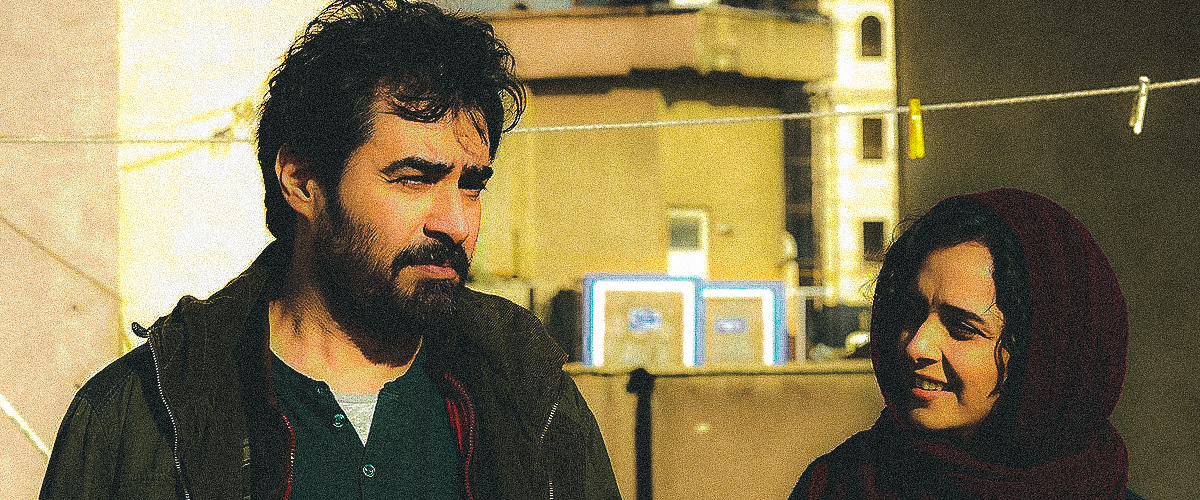The salesman is morally complex and utterly engaging
For the few Americans fortunate enough to visit Iran, one of the most startling discoveries can be the vitality, diversity and popularity of the arts scene in cities like Tehran.
Theater is also a lively center of cultural action. While Iran, uniquely in its region, has not only an indigenous form of traditional theater (Ta’ziyeh) but also a strong modernist descendant that includes such monumental talents as writer-director (and filmmaker) Bahram Beyzaie, Tehran also sees frequent stagings of works by playwrights including Ionesco, Beckett and Pinter. When a friend asked if it was realistic that Asghar Farhadi’s new, Oscar-nominated “The Salesman” shows an Iranian company staging Arthur Miller’s “Death of a Salesman”—a play by an American Jew—I replied that such things are common, as are presentations of works by Americans such as Tennessee Williams, Edward Albee and Sam Shepard.
The film opens showing us a marriage bed—a startling image in an Iranian film. But the lighting soon signals that this bed is on a theater stage; it will be the bed of Willy and Linda Loman. Next, we are in a suburban apartment building at night where the inhabitants are screaming and running for the exits. A disaster has destroyed the structure’s foundations and among the newly homeless are Emad (Shahab Hossieni) and his wife Rana (Taraneh Alidoosti). They are amateur actors playing the Lomans on the stage we’ve just witnessed, and that avocation turns out to be fortunate in one sense: one of their fellow performers generously guides them to a vacant apartment he knows about.
A spacious two-bedroom on the top floor of a building, it seems close to perfect, so they move in. Meanwhile, we see Emad in his day job teaching literature to a class of teenage boys. The key reference here will be unfamiliar to American viewers, so it’s worth unpacking. Emad is assigning the short story “The Cow” by Gholem-Hossein Sa’edi, a leading Persian 20th-century literary figure and political activist. After publishing the story, Sa’edi converted it to a film script that became the basis for Dariush Mehrjui’s “The Cow” (which we glimpse in a subsequent scene), the 1969 film that legendarily launched the Iranian New Wave of the 1970s and, after the Iranian Revolution, reportedly inspired the Ayatollah Khomeini to give his blessing to the continuance of Iran’s cinema, leading to its revival and global success in the 1980s and beyond.
One night, Rana is taking a shower when the apartment’s buzzer sounds. Thinking it’s Emad, she buzzes him in and returns to the shower. Soon we are in a hospital, where a frantic Emad sees his wife getting stitches in her head, badly injured. As he pieces together what happened, it seems an intruder came upon Rana in the shower, there was a struggle, glass was broken that cut her and left the intruder fleeing with bloodied feet. Neighbors heard the commotion, found Rana and got her to the hospital. She tells Emad she doesn’t want the police involved as she doesn’t want to tell the story again.
In pursuing his own investigation, Emad finds out that their apartment’s previous tenant was a prostitute.
Some descriptions of “The Salesman” call it a thriller, suggesting a Hollywood-style suspense film. It’s not. It’s a psychological and moral drama about how one man’s anger and damaged self-image drive him to the brink of destroying the very thing he ostensibly most wants to protect: his marriage. Yet Farhadi’s stylistic proclivities remind us that he is the most Hollywood-influenced of major Iranian directors.
When “A Separation” capped its global success by becoming the first Iranian film to win an Oscar, Farhadi effectively became an international director, a fact he implicitly acknowledged by making his next film, “The Past,” in France. With “The Salesman,” he returns not only to Iran but to some deeply Iranian themes, examining an atavistic tendency even in the most modern-seeming men and pitting that against the compassionate humanism at the core of both secular and religious thought in Iran
A Hero (2021)
A Hero is a 2021 Persian-language drama film written and directed by Asghar Farhadi, and starring Amir Jadidi, Mohsen Tanabandeh and Sahar Goldoost. In June 2021, the film was selected to compete for the Palme d'Or. At the 2021 Cannes Film Festival, the film won the Grand Prix.Rahim is in prison because of a debt he was unable to repay. During a two-day leave, he tries to convince his creditor (Mohsen Tanabandeh) to withdraw his complaint against the payment of part of the sum. But things don't go as planned..
Release date: January 21, 2022 (USA)



-2.jpg)









.jpg)